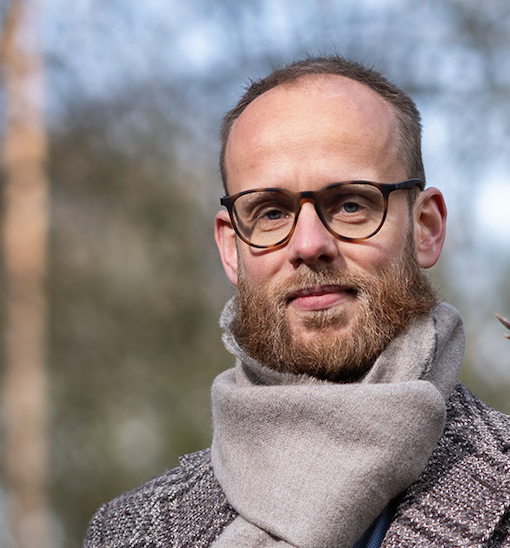IN SEARCH OF REGENERATIVE INTELLIGENCE
October 12, 2023
A version of this article was originally published @ ICT Magazine for IT Managers

Recently, Apple interrupted their iPhone 15 release event with a video in which CEO Tim Cook and his staff are chided for their environmental friendliness by Mother Nature. The latter role was played by none other than Oscar-winner Octavia Spencer. In an engaging manner, Apple is humble-bragging and showing how much CO2 and plastic reduction they have already achieved. The video receives much praise from fans, but critics simultaneously call the video ‘painful’, ‘greenwashing’, and ‘bizarre’, even though Apple has taken commendable steps. What is going on here?
For me the commotion is a signal of a new phase in which sustainability is no longer enough, and we are moving towards a regenerative economy with new business models. Degenerative behavior is coming under increasing pressure, and just reducing an organization’s footprint is not enough. The handprint needs to become simultaneously bigger, to say the least. Simply turning off unused IT systems over the weekend or programming a bit more efficiently is no longer sufficient to meet the new demands of this era. A sustainable, no, regenerative society calls for regenerative intelligence. Natural intelligence offers inspiration.
It was 1859. That year, Briton William Austin brought 24 European rabbits to Australia. A gift for his brother and hunter Thomas. Over the course of fifty years, these animals spread over an area of about 5000 km². This invasion is considered the most impressive animal colonization ever. Austin had no idea what he had done to Australian nature. Nowadays, the rabbits cause 200 million dollars in damage to agriculture annually and continue to threaten the indigenous flora and fauna of Australia.
The rabbits from Britain illustrate the immense consequences that can arise from thoughtless action. Our actions, such as the use of dangerous non-degradable substances or, for example, irresponsible artificial intelligence, continuously reveal our limitations in overseeing the bigger picture and foreseeing the consequences.
Stakeholders will be wanting more and more
If we want to tackle major issues like climate change and the approaching limits of earth’s resources, humility about our own abilities is appropriate. It doesn’t even matter if you think it’s right, because the forces surrounding your organization will demand it. Laws and regulations are rapidly changing towards greater transparency on the road to a sustainable economy. For example, the Digital Product Passport (DPP) will be launched in 2024. The textile and electronics industries, as well as battery manufacturers, must provide insight into product compositions and processes throughout the entire supply chain. Plus, everything about the reuse and recycling possibilities of the product. The passport is expected to become universal for these products by 2026, followed by other sectors. It is just one example of much new legislation within the framework of Europe’s ‘Green Deal’.
Like many other professionals, degenerative behavior is no stranger to the IT manager. With the advent of the cloud, for instance, unlimited use of IT capacity is a piece of cake and a blessing for many. However, the IT manager must also show different leadership for the sake of contributing to a regenerative economy.
From Degenerative to Regenerative Action
According to biologist Leen Gorissen, natural intelligence will help in this respect. In her book Natural Intelligence, Gorissen demonstrates how everything is interconnected. She refers to the relationship between whales and their food. In the 1970s, it was assumed that increasing whaling would lead to more krill and fish. Fewer whales mean fewer eaters, or so the idea went. While the number of whales drastically declined, the increase in fish and krill did not happen. It turns out the opposite was true. In protected whale areas, there is more krill and fish because, without whale feces, there are no nutrients for plankton to create food for krill and fish through photosynthesis. Whales are not merely plundering their environment. They are part of a sensitive ecosystem and contribute to its regeneration and maintenance. According to Gorissen, whales can be called ecosystem engineers. Through the so-called Centre4NI, the biologist now helps companies embrace systems thinking based on natural intelligence.
Synergy between Human, Natural, and Artificial Intelligence
This is also relevant for IT managers. If we keep doing what we have done, we will get what we have always gotten. How can IT be designed to go beyond reducing emissions, improving efficiency, and saving costs to actually become regenerative? How to find the ultimate synergy between natural, human, and artificial intelligence without falling into the known and unknown pitfalls?

A concrete example where human, computer, and nature have found each other is Pollinator Pathmaker; an algorithmic toolbox that assesses the conditions of your garden for a dream garden design and simultaneously knows how the garden contributes to the resurgence of endangered insects.
How IT, products, and services become truly regenerative is still a big journey of discovery. We’ve seen Apple isn’t there yet, they are still focused on reducing their footprint, while clustering to their business model of wanting the customer to buy a new version of their product every few years. How can this become regenerative?
I wished I had an easy 1-2-3 to follow, but we are in an exploratory phase. I’m starting a Regenerative Intelligence podcast series on Spotify and Youtube series in which I interview academics, thougthleaders and business pioneers in the regenerative field. If you know someone I should speak, please give a ping on LinkedIn.
No posts

 English | EN
English | EN 